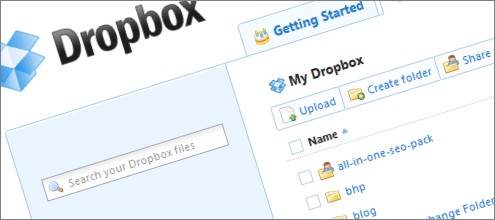 You might have spotted from my previous posts that I like to work out and about. Cafes, pubs, bars … they’re all fair game for me and my little laptop.
You might have spotted from my previous posts that I like to work out and about. Cafes, pubs, bars … they’re all fair game for me and my little laptop.
I enjoy working on the move, but this very modern way of getting stuff done isn’t without its pitfalls.
Here are six situations to watch out for when it’s just you and your laptop:
- The lunchtime rush. At 10.30am, the cafe you’re in is nice and quiet. But at 11.30, something happens. The door doesn’t stop opening. People pile in, ordering take out or grabbing the last spare chairs. Nursing a small coffee while the world passes through, you feel conspicuous and in the way. Especially when some noisy office workers elbow their way to the table next to yours. Productive? You might as well give up now.
- The noisy children. These normally appear mid to late afternoon, though you can encounter babies and toddlers at any time of day. I’m undecided which is worse: the hyperactive ones who run about and push bits of furniture around, or the well-behaved, over-inquisitive ones who sit near you with their mum or dad and just won’t stop asking questions. Often about what the strange man with the computer is doing.
- The power crisis. Less than one cup of coffee into a stop at a café and my old laptop was gasping for juice. I constantly had my eye on the location of power sockets in the room, ready to shift tables when a prime spot became free. No matter what precautions I took, the machine would inevitably die during a highly productive spell. And have you ever had that awkward conversation when a member of café staff spots your unofficial power hook-up?
- The ergonomic nightmare. Starbucks chairs weren’t designed with the prevention of carpal tunnel syndrome in mind. In fact, they were probably designed to be uncomfortable to sit in for long periods, thus encouraging a fast customer turnover. (Ok, so maybe that’s just me being particularly cynical. But pay attention to what your body’s telling you. Wrists aching? Back sore? Time to find a proper desk.)
- The beer-on-tap temptation. One of my favourite spots to work is a bar/cafe just round the corner from my flat. The thing is, they have beer on tap. Good beer. A pint is ever-so-appealing, especially if I’m struggling with a tricky bit of work. I can usually resist the temptation, or postpone it by promising myself a glass when the job’s done, but every now and then (usually on a Friday afternoon) the pull is too strong.
- The toilet dilemma. Some cafés make you feel bad if you’re not constantly sipping while you work. With that much fluid intake, the inevitable tends to happen sooner rather than later. And that can lead to a difficult choice: do you pack everything up to guard against theft (in which case you might as well move venues), or trust the slightly shifty bloke on the next table to watch the laptop and papers you’ve spread out?
What obstacles have you faced when working out and about? Leave a comment and let me know.

You might have read about how I broke my netbook the other week. The computer’s hard drive – contanining important work I’ve done for clients – could have been destroyed when it hit the ground, and the incident has rammed home the importance of keeping safe backups of my work.
Thankfully, I’m already pretty clued up. A few months back I started using Dropbox, an online backup and file sharing tool. It does three important jobs for me, and I wouldn’t be without it now:
- It keeps my files safe. Dropbox creates a special folder on my computer. Anything I save there gets backed up across the internet to a secure server. It means that if my laptop is stolen or broken, or files get deleted, I can hop online and get them back.
- It synchronises files across my computers. Dropbox keeps files up-to-date on both my computers. If I edit a file on my main PC, it gets copied across to my netbook the next time I turn it on. I’m never without the latest version of my work.
- It lets me share files with other people. It’s easy to set up shared folders with Dropbox, so lots of people can access them. I occasionally use this feature to get work to clients, but I can see it could be really useful for working together on projects.
That’s not the end of this handy service. It has a web interface, so I can log in and grab my files from any internet-connected computer. There’s even an iPhone app.
It does version control, so I can roll back to an older version of a file if I make some horrendous mistake. And – I’m aware making a statement like this is asking for trouble – it’s never crashed on me. Not once.
If you don’t have a safety net to protect your important files, go and get Dropbox. Now. It’s free for up to 2GB of storage, and a piddling $9.99 a month for up to 50GB. I can’t think of many services I’d recommend more wholeheartedly.
 When I started out, I didn’t have any kind of copywriting contract for my clients to sign. But after a few months of relying on informal, emailed proposals, I felt I needed something more official.
When I started out, I didn’t have any kind of copywriting contract for my clients to sign. But after a few months of relying on informal, emailed proposals, I felt I needed something more official.
Yes, contracts are boring, dull, tedious and generally unenjoyable. But they are important.
They explain exactly what each party in a business relationship should expect – and what they have to do. They can also be invaluable if things ever go wrong, because it’s harder to argue with something if it’s written down in black and white.
Here’s my copywriting contract for free
Most contracts I’ve encountered are written using lots of legalese and can be very confusing. I wanted mine to use plain language, so anyone could understand it. To get going, I needed some inspiration, so I hunted around and found Andy Clarke‘s excellent killer contract.
This seemed like a great starting point, so I grabbed it and made some pretty substantial changes. Andy offered his contract up to anyone who wanted to use it, and in the same spririt, I’m doing that too. So download my copywriting contract now. It’s available in several file formats:
I received a lot of really helpful feedback while working on this. So thanks to Simon Wicks, Matt Telfer, Matthew Stibbe, Jim Anning and Martin Grocock.
What you need to know about my copywriting agreement
Feel free to download my copywriting agreement and use it however you like. All I ask is that if you republish it, you mention me and link back here.
You can change it any way you want. At the very least, you’ll need to replace the bits in square brackets with your own details and decide how you want to handle cancellations.
Oh – and this is important: I’m not a legal professional, so get your legal eagles to examine it properly if you decide to use it.
More information about my copywriting agreement
I tailored this contract to address the following problems in particular, because they’re things I’ve been concerned about when working with clients:
- Scope creep. I usually work to a fixed price on projects and try to be flexible. Clients seem to prefer this – but I’ve been worried they’ll see my flexibility as an invitation to change the brief midway through a project, creating lots of extra work for me.
- Tardy payment. So far, I’ve been pretty lucky – most clients are super-speedy payers. But with no agreed payment schedule beyond the 30 days stated on my invoice, I’ve not been particularly well covered if I do hit problems.
- Deadline drift. It’s a real pain when you turn a job round fast only for the client take forever to decide on revisions. It makes scheduling jobs trickier – and it takes longer to get back up to speed if I’ve not worked on a project for a while.
These may or may not be things that concern you – and so you might want to add or remove bits from the contract before you use it.
Bad clients are still bad clients
I don’t think even the best contract in the world can ever substitute for treating your clients properly, communicating with them effectively and doing each job to the best of your ability. And it would be a bit naïve to think a contract can protect you entirely from bad clients.
But what it can do is make your business relationships more official, provide a clear document to refer to in the event of any sort of disagreement – and give you a bit leverage if things go wrong. If you use mine, please, let me know how you get on.
 You might have spotted from my previous posts that I like to work out and about. Cafes, pubs, bars … they’re all fair game for me and my little laptop.
You might have spotted from my previous posts that I like to work out and about. Cafes, pubs, bars … they’re all fair game for me and my little laptop.

 When I started out, I didn’t have any kind of copywriting contract for my clients to sign. But after a few months of relying on informal, emailed proposals, I felt I needed something more official.
When I started out, I didn’t have any kind of copywriting contract for my clients to sign. But after a few months of relying on informal, emailed proposals, I felt I needed something more official.